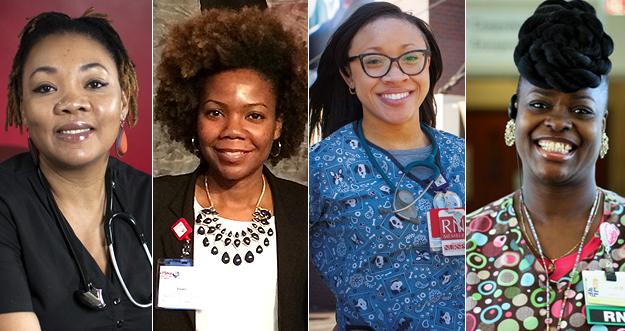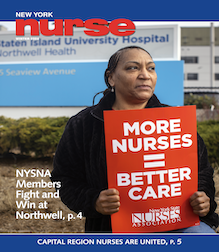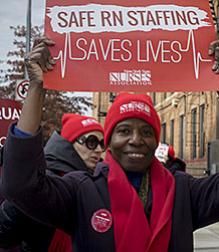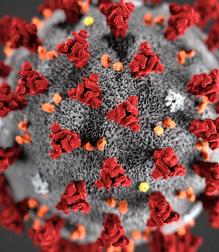
February is Black History Month, a time to acknowledge the incredible work of black scholars, writers, artists, scientists, civil rights activists, elected leaders, and, of course, nurses. It is also a time to reflect on our country’s painful history of slavery, Jim Crow laws, and on current systems of racism, including disparities in healthcare.
A new generation of NYSNA nurses is taking the lead in our union’s fight for a better future for our patients and our families. We asked some of our black nurse leaders to share their thoughts on Black History Month.
Donnet Smith, RN
Montefiore Medical Center Home Health Agency
“As a home care nurse, part of my job is building trust. I see a lot of older black men who won’t do medical exams — some of them are in their 80s and they still remember the Tuskegee syphilis experiments — so they don’t trust the healthcare system.”
“In Jamaica, where I grew up, the majority of the country is black, so the differences we had there were of income and status, not race. When I came here, I learned about race relations and all of the struggles that African Americans had to face to get this country to where it is today.”
“Black civil rights leaders in this country, like Dr. Martin Luther King, Jr. opened the door for a lot of other movements, like the gay rights movement. It’s important for everyone to learn from this history.”
Editor’s note: The Tuskegee experiments were government-funded experiments on black men that lasted for more than 40 years wherein patients were intentionally denied treatment for syphilis so that researchers could study the effects of the disease. The experiments finally ended in 1972. President Bill Clinton officially apologized for the unethical and racist experiments in 1997.
Tara Christopher, RN
Woodhull Medical Center
“Black history month is an opportunity for us to reflect on the contributions African Americans have made to this country, like Dr. Martin Luther King, Jr., Rosa Parks, Harriet Tubman, and now Barack Obama. I think having a black president has made a difference because now black people my age, we feel like we can conquer anything. But there are still disparities that we have to address.”
“In many black communities, there aren’t options for healthy food and there isn’t enough access to preventative healthcare. Often a person’s first visit to the hospital is when they are so sick they have to go to the Emergency Room.”
“I was two when I was diagnosed with asthma. I became close with the nurses who treated me and they changed my life. I became a nurse so that I could help other people just like I was helped. I know that asthma often comes from where we live. In lower-income communities like the one in which I grew up, there are higher rates of pollution and other triggers for asthma.”
Ykeeta Henderson Wilson, RN
Erie County Medical Center
“My father actually marched with Dr. Martin Luther King, Jr., and I grew up hearing stories from the civil rights movement. We’ve come a long way as a country, but sometimes it’s disappointing to see how far we still have to go.”
“I always tell my kids to take advantage of all of the rights that our ancestors fought for because not too long ago we didn’t have the right to vote, the right to an education, or the right to walk into any grocery store.”
“I try to set an example for my children. When my daughter was in high school I went back to school to study nursing. In nursing school, I did not have a single black professor. Now, I’m enrolled in a master’s program because I want to teach nursing.”
Dawn Minerve, RN
NewYork Presbyterian
“Black history is American history — it’s a part of everything that has happened in this country from its inception, since the moment they started importing slaves for labor.”
“Because of the media, we’re all aware of the shootings of young black men. I never knew so much worry before I had my son, who is 11. I look at him and I see this is my child, this is my baby. But I know someone could look at him and think that he’s in the wrong just because he is black. He doesn’t have to be doing anything wrong for him to lose his life and for someone to justify it. And that is terrifying for a mother.”
“If you see the humanness in yourself and in others, it’s hard to harm them. It’s only when you separate yourself and start saying, ‘he’s not like me, his life doesn’t have as much value as mine,’ that those things start to happen. It doesn’t matter your economic situation, your sexual orientation, your ethnicity, we are all the same. We are all humans.”




